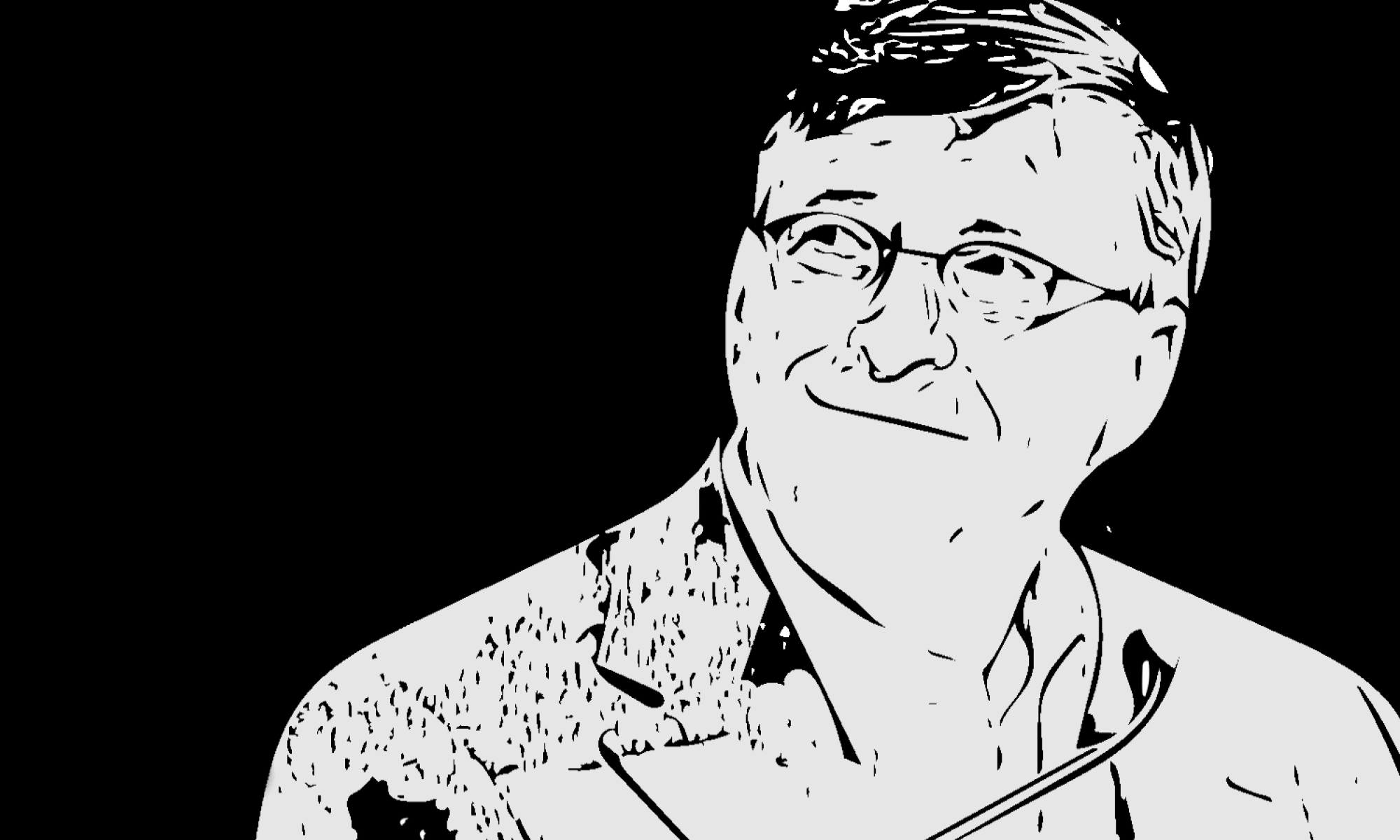Every January, high in the mountains of Switzerland, the tiny resort town of Davos hosts thousands of political, business, and economic leaders for the World Economic Forum annual meeting. The overarching mission of the World Economic Forum is to promote partnerships between government and businesses, and the conference provides current events based talks and discussion forums targeted at the “haves” of the world. The founder and chairman of the World Economic Forum, Klaus Schwab, is known for his advocacy of stakeholder capitalism, in which industry should work for the benefit of all its stakeholders — employees, customers, shareholders, community members, and others — as opposed to just shareholders. The conference theme this year: Rebuilding Trust. (Rebuilding trust in the abstract, mind you, this was not an admission that the global elite had broken trust and now need to repair it.)
Conspiracy theories aside, the Davos conference leans more Alpine retreat with TED-talks than sinister cabal. Politico mocked this year’s offerings for exhibiting the kind of bland political discourse you’d expect to pair with a white picket fence and a two car garage. And indeed, the talks and panels are standard fare — what’s going to happen in the Middle East, how will AI impact the economy, how can science be more transparent.
The event is many ways thoroughly modern — globalist, corporate, technocratic. And yet, its ethical spirit is an old one: noblesse oblige (literally, nobility obligates). The phrase connotes that nobility and its associated privileges is no free lunch, but comes with commensurate moral obligations, especially to the less privileged. The opening remarks appealed to notions of “stewardship” and “trusteeship,” asserting “as leaders in government, business, and society we bear a particular responsibility to rebuild trust in how we assume our own role as trustees.” The “we” here being those invited to the conference. Attendees were repeatedly encouraged to use their power wisely and to care about the greater good.
Davos grates against American anti-elitist sentiments, but vast inequality is a fact of the modern world and noblesse oblige merits due consideration. The most cynical interpretation is that it is more a PR gambit than anything else; an implicit claim that the rich should get to keep their money because they are being ethically responsible with it. A slightly less cynical interpretation, is it that it self-soothes those at the top confronted with inequality. But let us accept for the moment that many wealthy and powerful individuals do genuinely want to help the less privileged. What comes of this? Is this a good thing? Can we count on it in lieu of progressive taxation or redistribution?
The most compelling argument in favor of noblesse oblige is simply the unsettling alternative — nobility without obligation. If there is going to be such inequality, do we not want cultural mores which encourage benevolence and civic-mindedness among the elite as opposed to rapacious individualism? More generally, across multiple ethical perspectives it is an uncontroversial “good thing” for people to care about and help other people.
There are also practical advantages. An ethos that encourages the elite to use their resources and skills to help society, if taken seriously, has a genuine possibility of creating positive change. Societal change requires power, which, naturally enough, powerful people tend to have. The elite also often have access to skills and information that can greatly aid in problem solving. To be clear, it is not that elites are inherently better or more skilled, but rather that a life path awash in resources and opportunities advantages one in developing their skills.
The real question for the public is not whether we want our modern-day elites to be benevolent as opposed to selfish (obviously benevolent), but whether to accept noblesse oblige as an adequate response to inequality. Are we okay with present levels of inequality, if the wealthy and powerful adopt a social code of benevolence of good stewardship? What are the limitations of this?
Perhaps the most straight-forward challenge is that noblesse oblige is not meaningfully committed to political equality. It cares about general well-being, not wanting deprivation or abject poverty, but not about relative inequality. For some, it may be enough that the benefits of wealth trickle down to the poor and that everyone materially benefits even as relative social positions stratify. Others, such as the philosopher Elizabeth Anderson, argue we should seek a full-throated equality in which community members stand in social relations with each other as equals. Even if noblesse oblige genuinely encouraged those at the top to care about wealth inequality, the inherent paternalism would fail to deliver on Anderson’s understanding of equality as it would not treat the less fortunate as social equals.
A choice line from American steel baron Andrew Carnegie’s famous essay, “The Gospel of Wealth” reveals this creeping condescension even while encouraging philanthropy: “the man of wealth thus becomes the mere agent and trustee for his poorer brethren, bringing to their service his superior wisdom, experience and ability to administer, doing for them better than they could or would do for themselves.”
Similarly, while noblesse oblige often encourages the powerful to help and solve problems for the less privileged, it does so on the terms of the powerful. As Carnegie illustrates, from the perspective of the wealthy and powerful, this is a feature not a bug. Klaus Schwab, the World Economic Forum chairman, asserts, “we come together at the beginning of the year to analyze the state of the world, in a systemic and strategic way” — the world’s problems as defined and curated by 3000 people enjoying canapés in the Swiss Alps. The overarching concern is that the vaunted knowhow and the problem-solving power of the elite may not matter if there is not agreement as to what the problems are.
Noblesse oblige is also, phrasing aside, ultimately a social/moral norm as opposed to an enforceable legal or institutional obligation. The implicit assertion is that a more powerful enforcement mechanism is not required, as the wealthy and powerful will be responsible with their wealth and power. (And more skillful than the fumbling hands of the government or general public.) The assessment of whether this promise is enough is ultimately for society more broadly to decide. Although there is also some measure of self-interest at play. Historically, too much “noblesse” and too little “oblige” has led to aristocracy losing their wealth, and sometimes their heads.
Finally, noblesse oblige places boundaries around societal change. It does not question the position of the nobility (the rich, the wealthy, the influential, the powerful) themselves, but rather takes the current distribution of power as its starting point and asks what obligations follow. It puts out of reach — on pain of self-sacrifice — any solution to societal problems which would strip the wealthy and powerful of their wealth and power.



